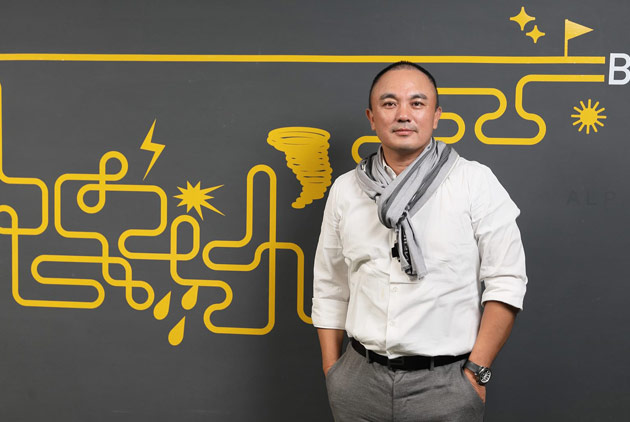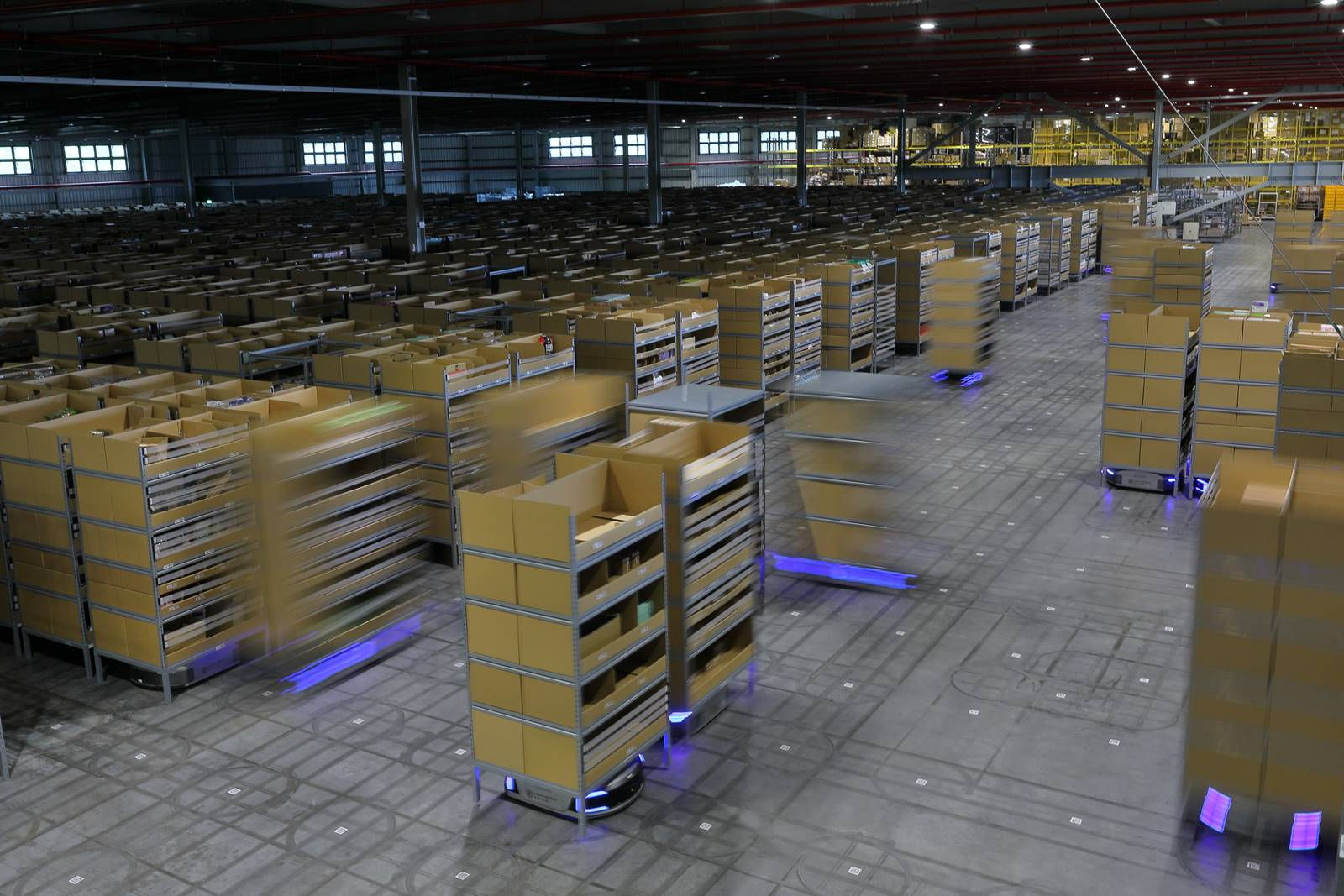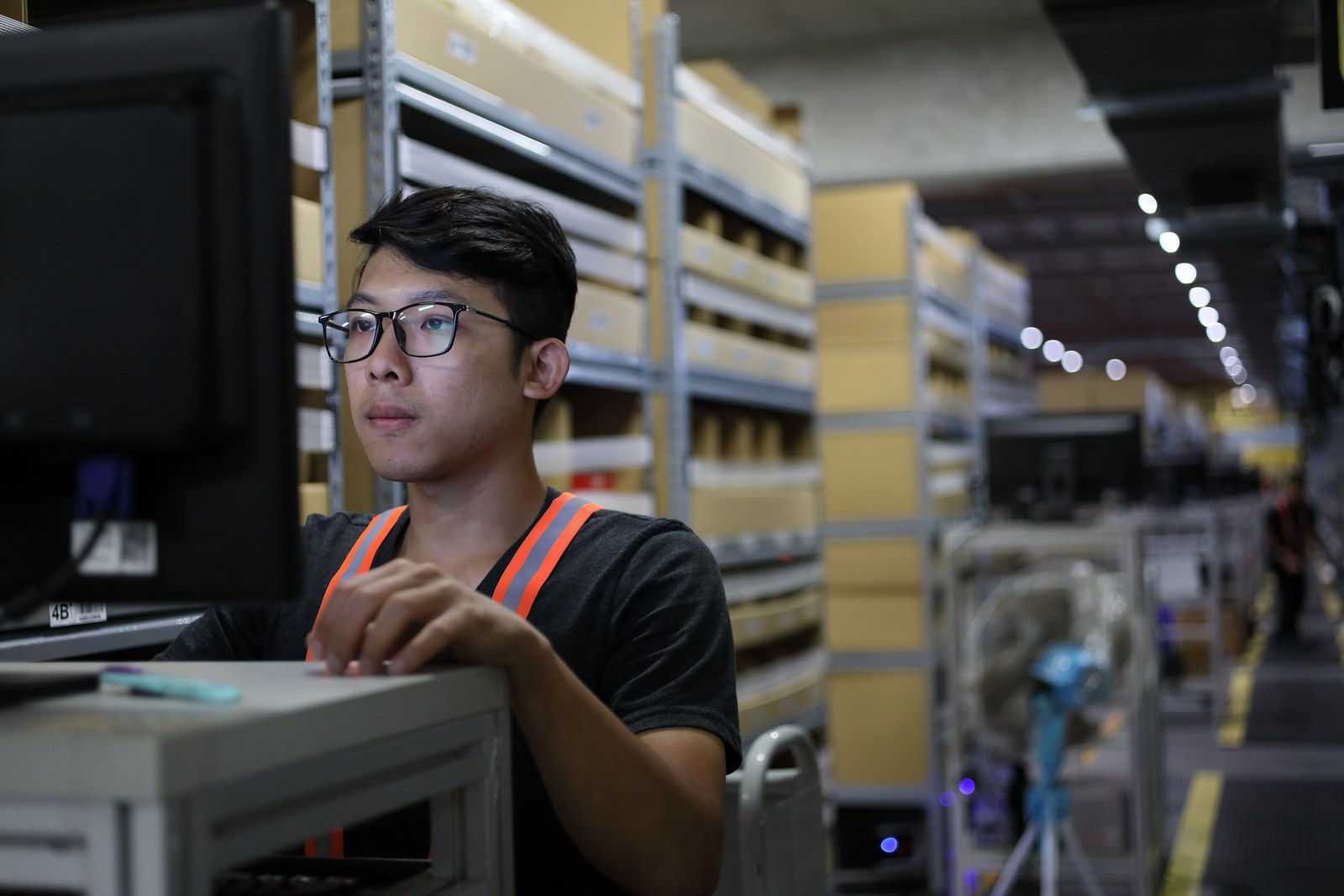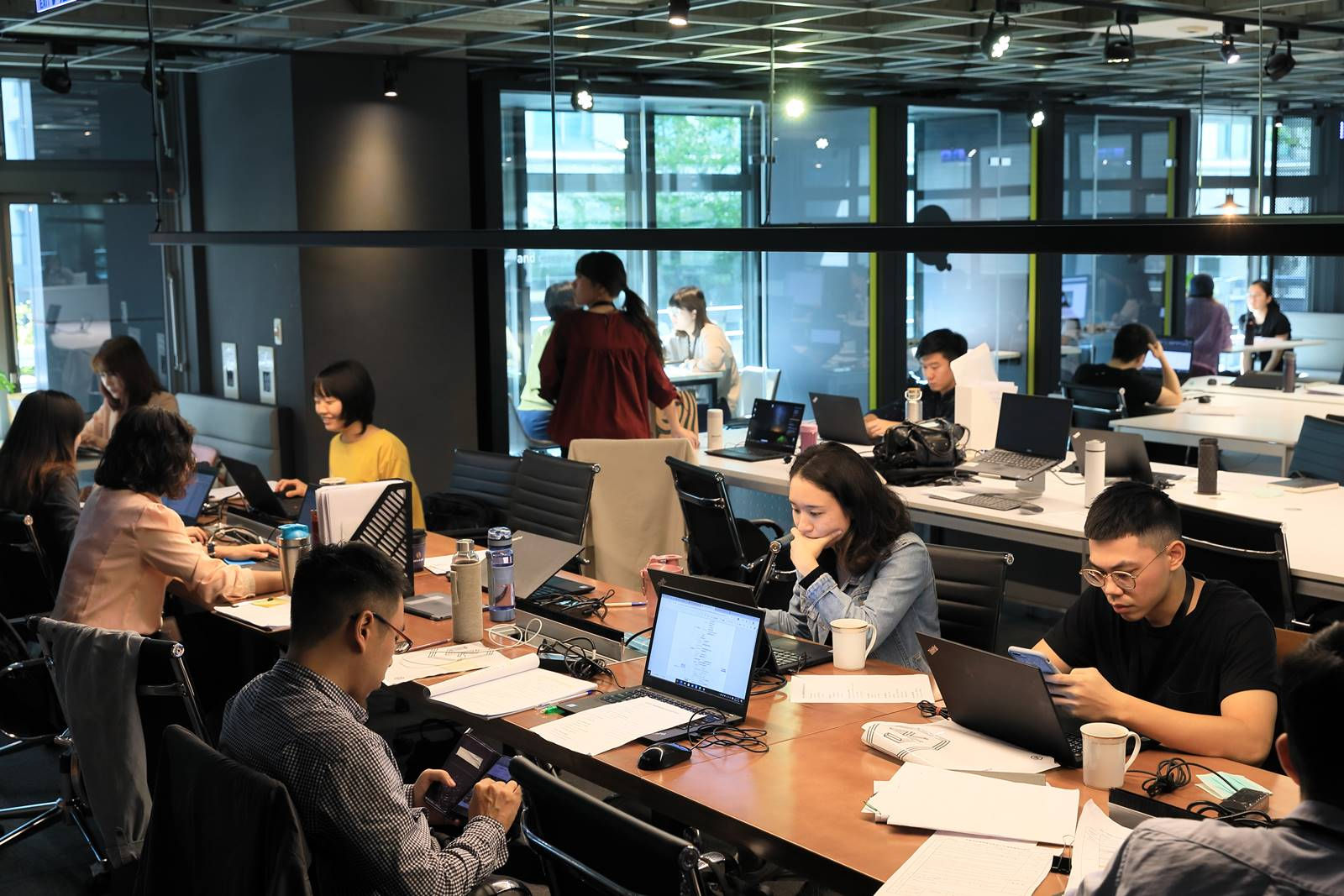Logistics Made Sexy with Warehouses Resembling Art Museums

Source:Chien-Ying Chiu
Since its founding in 2014, Ally Logistic Property has become synonymous with high-tech, upscale warehousing services. One might think a warehouse is nothing more than a shed made from sheet metal. This one uses Amazon robots for the heavy lifting. How did ALP turn warehouse work into a famous brand?
Views
Logistics Made Sexy with Warehouses Resembling Art Museums
By Meng-hsuan Yangweb only
“I wanted to make warehousing and logistics sexy.” This was the vision of Charlie Chang (張建泰), Managing Director of Ally Logistic Property (永聯物流).
Usually, warehousing and logistics are hidden behind the scenes and so far removed from the spotlight that you can hardly think of anything less “sexy”.
However, visit the Taipei branch of ALP’s “Logistic Republic” in the hills of Ruifang District in New Taipei suburbs, and one might be surprised. The 50-hectare park is the seat of ten magnificent warehouses designed to look like art museums, all nestled on the side of a mountain. There is also an employees’ cafeteria designed in the industrial style.
ALP is the only institutional logistic property developer in Taiwan. Its customers include global heavy-hitters like Decathlon, DHL, H&M, and Bosch.
ALP was founded in 2014, but it has already invested NT$23.4 billion dollars all over Taiwan to build five awe-inspiring logistics parks. In comparison, momo.com Inc., Taiwan’s biggest e-commerce company, invested only NT$4.1 billion in its northern logistics center; it spent 630 million buying land for its logistics center in Tainan.
In ALP’s Taipei park, one can see automated guided vehicles (AGVs) like those used by Amazon and Alibaba. ALP’s fleet consists of 108 such vehicles. They look like giant Roombas but can lift two-meter high shelves. They read the QR codes printed on the floor and move in precise patterns, forming a neat line as they wait for the staff to unload their cargoes.

The park also houses Taiwan’s only warehouse dedicated entirely to storing wine. Even the color scheme of the interior design is a rich burgundy. It can hold up to 3.5 million bottles. Sixty percent of the wine in Taiwan’s market comes from this warehouse.
On the other side of the park, the country’s biggest smart cold chain facility is still under construction. It is slated to open during the third quarter of next year. Taiwan Distribution Center Co., the logistics arm of convenience store giant FamilyMart Co., has already leased more than half of the space. The famous food brand Lao Xie Zhen (老協珍) is also planning to store their delicacies in ALP’s Yunlin park.
The brains behind the brand is Charlie Chang, age 47. He is heir to Sansin Builders Co. (三星營造), a renowned construction company. Sansin built the National Taiwan Museum of Fine Arts in Taichung and the Taipei Expo Park. After getting a master’s degree in the Department of Civil Engineering and Engineering Mechanics at Columbia University, Chang returned to Taiwan to inherit the firm.
At the time, a foreign logistics company told him the shocking truth: Despite being an island of groundbreaking technology, Taiwan’s warehousing facilities were behind even those found in Thailand.
The fact of the matter was, warehouses should be built on land zoned for industrial use. But back in the day, most of Taiwan’s industrial zones were used to build profitable factories. The less-valuable warehouses were cobbled together from crude sheet metal and erected illegally outside of industrial zones. Foreign brands shun such haphazard practices.
The sorry state of Taiwan’s warehousing services revealed an opportunity to Chang. In order to master the art, he studied real estate development at Stanford and architectural design at Havard. He also flew to Shanghai to learn from GLP Pte Ltd., the global logistics real estate investor. He brought world-leading concepts and technologies back to Taiwan.
In 2013, he completed his first world-class warehouse. Hong Kong’s LF Logistics became his first customer.
An Investment from Cathay Life
At the same time, Cathay Life Insurance, the biggest landlord in Taiwan, was looking for new real estate projects to invest in. Cathay had the money, but it lacked the talent for managing warehouses and logistics.
It became aware of ALP through LF Logistics. Together, the two hammered out a new way to collaborate.
In 2014, Symphox Information Co. (神坊資訊), which is owned by Cathay, bought 51% of ALP’s stocks. It bought land in Ruifang to lease back to ALP. Cathay Life bought up land all over Taiwan; Symphox provided information technology until 2016, and ALP took charge of designing, planning, and operating the logistics parks. With very deep pockets to help bankroll its efforts, ALP has developed more than 50 hectares of warehouses in Ruifang, Taoyuan, and Taichung. They serve the diverse needs of a wide range of customers, including retail, ecommerce, pharmaceuticals, home appliances, food, FMCG, precision machinery, and more.
ALP has its own land and plenty of money. It has the potential to revamp Taiwan’s entire logistics industry. Kune-Muh Tsai (蔡坤穆) explains that conventional logistics companies are very sensitive about expenses. If they are renting the warehouses, there’s no way they are investing in an upgrade for the facilities. For example, look at goods that can be stored at room temperature. On average, logistics takes up only 4.5% to 5% of the total price. This leaves very little wiggle room for logistics companies.
But ALP is cut from a different cloth; it is an institutional logistic property developer. It owns the land and the facilities. It has what it takes to invest at an international level and buy new technology.
The wine warehouse is the best example. In the beginning, human workers were in charge of inventory management. But ALP discovered that all of the information on the bottles was written in English, which is not necessarily intelligible to the logistics workers. They’ve also caught staff members smuggling bottles out to sell.
This made up Chang’s mind. He introduced two automated storage systems; one to handle bottles, the other to handle crates. “In the future, when it becomes possible to buy wine online and bottles need to be shipped out individually, we will be very well prepared.”
In 2017, the ecommerce company PChome moved into Logistic Republic’s park in Taichung. ALP did research and interviewed dozens of international companies. In the end, it imported a fleet of around 50 AGVs, which saved 60% of labor costs.

Their success with robots in Taichung was quickly replicated in the Taipei park. Dozens of small- and medium-sized ecommerce clients are serviced by these vehicles. To understand their effectiveness, the volume of orders on Singles' Day this year was three to four times larger than the average volume on a usual day. But thanks to the AGVs, it took only twice as long to fill all the orders.
Hiring Inexperienced New Blood for Tryouts
Chang has his own philosophy when it comes to hiring. The average age of his employees is 35. Chang says when he first founded the company, it was difficult to find good help because he had no connections. So he changed tactics and hired from all walks of life. He even recruited in universities.
He has a five-person strategy research team in his office. Their job is to find new scalable business models and resolve any problems. Every member is below 30 years of age and has a master’s degree from a top-rated university.

Challenge: Is High-class Equipment Really Suitable?
A former general manager of a logistics company commends ALP for importing world-class scale and technology, but cautions that instead of buying the best, it would be wiser to buy the most suitable. “Logistics is a business with narrow profit margins. One should strive to find the most optimized solution. Investing in fancy modern equipment may be detrimental to efficiency.”
ALP is ready to export its expertise to Southeast Asia. It has found partners to work with in Kuala Lumpur. They bought 17 hectares of land and will begin constructing warehouses in 2023.
“If you can satisfy international brands in Taiwan, you have a chance in other countries, too.” For example, ALP has serviced the French sporting goods retailer Decathlon for four years. The headquarters in France wants to use Taiwan’s experience as a standardized model for its other global branches to emulate.
Chang is not limited by conventional thinking. Under his leadership, ALP is using new ideas to revolutionize Taiwan’s understanding of the warehousing and logistics business.
Have you read?
♦ How Can Taiwanese Dramas Soar with Netflix?
♦ Why does this Taiwan Hotel CEO Expand under COVID-19?
♦ Starlux Boss: Pandemic Forces Us to Do Unusual Business
Translated by Jack Chou
Edited by TC Lin
Uploaded by Penny Chiang






